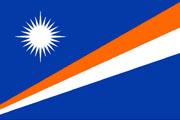Mr. Chairman,
The Effects of Atomic Radiation are a matter of the utmost concern for the people of the Marshall Islands. Between 1946 and 1958, while my country was under the care of the United Nations Trusteeship Council, the United States conducted a series of nuclear tests in the Marshall Islands, which included the surface detonation of 67 large-scale atomic and hydrogen bombs. In 1954, the Bravo test was conducted at Bikini Atoll where the Marshall Islands suffered a fifteen megaton blast. This blast was one-thousand times more powerful than the atomic bomb in Hiroshima. It vaporized several small islets of Bikini Atoll and spread radioactive debris across our entire islands. Today, many of our people continue to suffer from serious long-term health effects while others remain displaced from their homes due to ongoing contamination. The true impact of these weapons tests upon our people, land and water is beyond description.
Mr. Chairman,
I call the Fourth Committee’s attention to the Marshall Islands’ continuing struggle with the legacy of atomic weapons testing, not just to underscore the devastating social and environmental impacts of atomic radiation, but also to emphasize the urgent demand for scientific consensus regarding the effects of atomic radiation.
The Republic of the Marshall Islands is a strong supporter of the work of the United Nations Scientific Committee on the Effects of Atomic Radiation – a Committee whose studies and scientific investigations are of great value not only to us but to all the Member States of the United Nations.
The Republic of the Marshall Islands would like to thank the Scientific Committee for its excellent work in providing greater public access to their scientific findings by making them available on the internet. Although under-funded, the Scientific Committee has taken valuable strides with the responsibilities entrusted to it.
Mr. Chairman,
The Scientific Committee’s objective and authoritative conclusions are much needed by the Republic of the Marshall Islands. In the sixty years since the start of the US nuclear weapons testing program in the Marshall Islands, several generations of scientists have made a variety of conflicting assessments regarding both the degree of remaining radioactive contamination as well as safe levels of human exposure. The objective research and authoritative conclusions from the United Nations Scientific Committee are invaluable to the Republic of the Marshall Islands.
The people of the Marshall Islands have suffered a great deal for the last half a century from the effects of atomic radiation. As the Committee responsible for discussing atomic radiation research and studies, we value your assistance and seek your support for the Marshall Islands’ Changed Circumstances Petition submitted to the US Congress in 2000. In our important quest, we also seek the assistance and support of both the United Nations Scientific Committee on the Effects of Atomic Radiation, and all UN Member States with similar experiences pertaining to the restoration of environments contaminated with radiation.
Previous policy and resettlement decisions, based upon misleading scientific opinions, have met with devastating consequences. Recent scientific discrepancies surrounding the effects of atomic radiation in the Marshall Islands were discussed in the March/April 2000 issue of the Bulletin of the Atomic Scientists.
Faced with conflicting scientific conclusions, the Republic of the Marshall Islands is challenged to complete policy action regarding issues of public health, environmental remediation and possible resettlement. By increasing the Scientific Committee’s technical and administrative capacity, the United Nations would allow the Republic of the Marshall Islands to safely move forward by giving our country a more accurate picture of what steps need to be taken to address our specific needs.
Mr. Chairman,
Recognizing the importance of the Scientific Committee’s work, the United Nations must ensure the provision of an adequate operating budget will allow the Committee to truly fulfill its mandate. In this regard, the Republic of the Marshall Islands strongly supports the resolution sponsored by Australia, which urges the United Nations Environmental Programme to strengthen the Scientific Committee’s funding.
While we appreciate the issue’s complexity, it is nonetheless regrettable that this is not the first time the Republic of the Marshall Islands has addressed this issue before the Fourth Committee. It is important that this resolution be considered more than a hollow endorsement or distant scientific goal.
Thank you.

